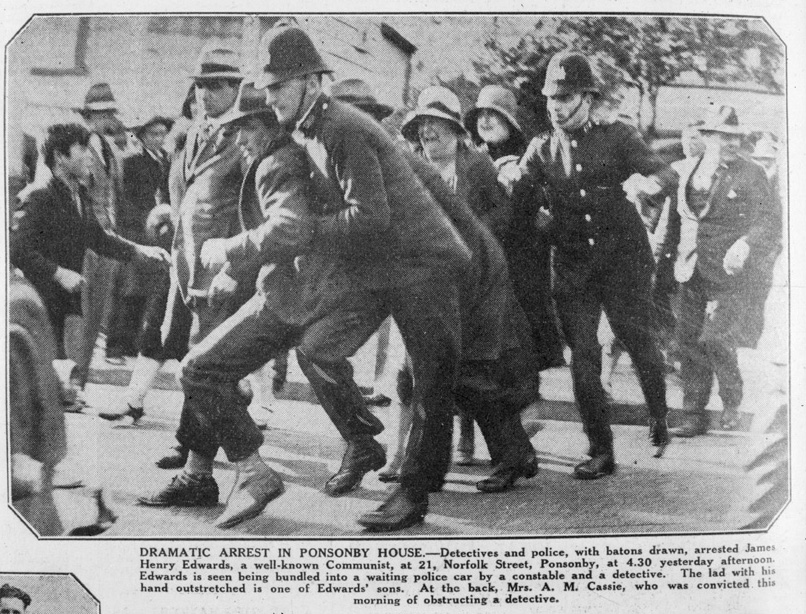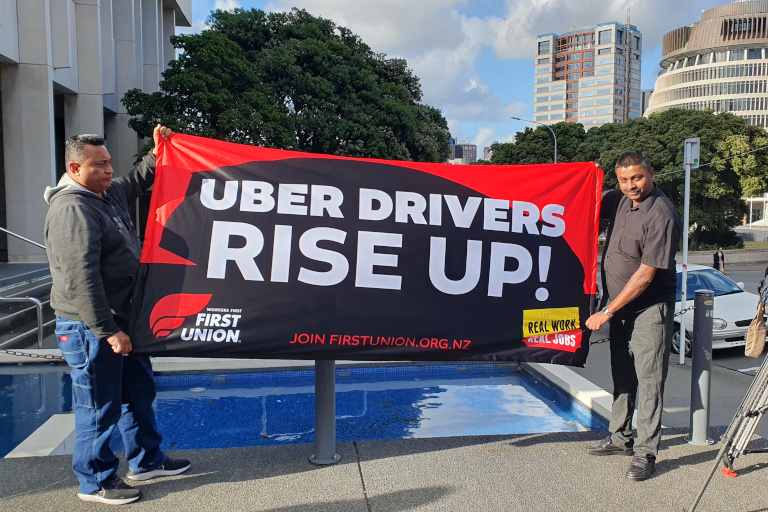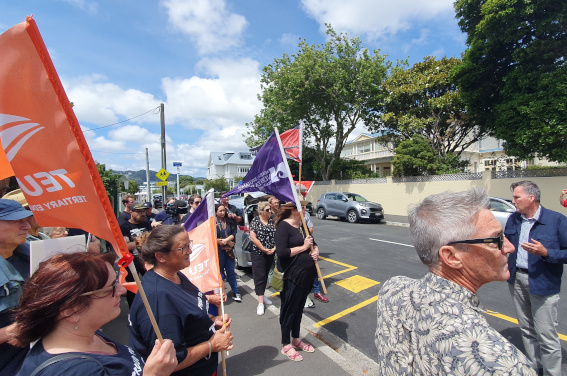There’s an old Kiwi joke that in the 1950s unemployment was so low, down to a mere few dozen individuals, that the Minister of Labour knew the name of every person collecting the dole. In those days, Government policy had an eye towards the full employment of the working class. Today, state institutions refer instead to “maximum sustainable employment”.
Increasing unemployment solved a few problems for the owning capitalist class. When unemployment was near zero, the power of the working class, organised primarily by trade unions, was at an all-time high. Unions could shut down a sector in pursuit of higher wages and better conditions, and scabs were hard to come by. Rising unemployment injected heightened labour market competition into the picture, a downward pressure on wages.
This pool of unemployed workers serves as a reserve army of labour: a portion of the working class that is more desperate, precarious, and poor than the rest, ready to work for effectively any boss that needs them. Coupled with a welfare system that ensures that unemployed workers are economically second-class citizens and are humiliated at every step of the process, the unemployed serve a useful function to the capitalist economy: cheap labour on tap.
That cheap labour drives wages down for all workers, a fact that is inconvenient to the political class (particularly when courting voters before an election), so this fact needs to be obscured. The unemployed are instead demonised as lazy and entitled, especially by an increasingly rightward-drifting conservative wing, now with a stronger anti-worker libertarian element in ACT.
National Party MP and Social Development Minister Louise Upston chooses to obscure economic reality by blaming unemployed workers for their “entrenched welfare dependency,” then promises to solve this “dependency” by escalating sanctions that claw welfare payments away from them. Upston has also signalled the coalition Government’s intention to introduce a “traffic light system” which, at its harshest, would cut off all welfare payments and force individuals to undertake “mandatory community work experience”. That is to say, state-backed forced labour with a PR spin.
None of this can escape material reality. The ruling class asserts that zero unemployment is not a goal. Adrian Orr, Governor of the Reserve Bank, admits that the Reserve Bank is intentionally engineering a recession in an attempt to drive down inflation. So we have an especially precarious strata of the working class who are unemployed not due to some personal failing, but by virtue of the rules of modern capitalist economics, and whose joblessness is intentionally created by the ruling class to serve our economy. To admit these truths would be to admit that the unemployed should be treated as full members of the working class, and compensated as such – an admission that comes with a price tag for the state, and makes almost inevitable some form of taxation to cover that price tag. National and Act are rhetorically and ideologically opposed to this line of honest thinking and so scapegoat the unemployed. Meanwhile, Labour shies away from even the reformist fight for a more progressive taxation system that could compensate the unemployed for their economic role, instead choosing to preach liberal politics of kindness and modest bookkeeping.
The Labour Party has consistently failed to articulate the purpose of welfare in the economy and the class position of the unemployed, instead convincing workers to undervalue both. It failed to introduce the recommended policies of the Welfare Expert Advisory Group, and shielded the economic victims of the pandemic from the realities of beneficiary hardship with its two-tiered welfare system during COVID-19 lockdowns. This set the stage for a right-wing coalition to come along in Labour’s wake and smash existing protections for the unemployed.
Of course, we can’t and shouldn’t rely on capitalist parliamentary parties to articulate these economic class realities. This is not to say, as is sometimes asserted, that the two major parties are functionally identical in their approach to welfare. This is an infantile position that fails to recognise this government’s escalating draconian measures for what they are: heightened class war that will siphon yet more money away from the working class. This government’s policies will, at their worst, kill more people as a result of poorer health and housing outcomes, and the higher suicide rates associated with poverty and unemployment.
Our role as socialists is to articulate with clarity the class position of the unemployed: that full economic dignity benefits all of us, and competing with our poorer neighbours hurts us. We need to raise welfare demands in mass anti-government action, drive up wages through rank-and-file union activity, and bring the unemployed into our struggle wherever possible. To paraphrase Adolph L. Reed Jr, the liberal project is to bear witness to suffering, rather than politically changing anything. Our project, as socialists, is to liberate the working class from that suffering, through agitation, by organising ourselves into trade unions, campaigns and socialist organisations, and changing the class structure of society. Lofty goals, but goals that start simply with developing class consciousness in ourselves and those around us – the employed and unemployed.









